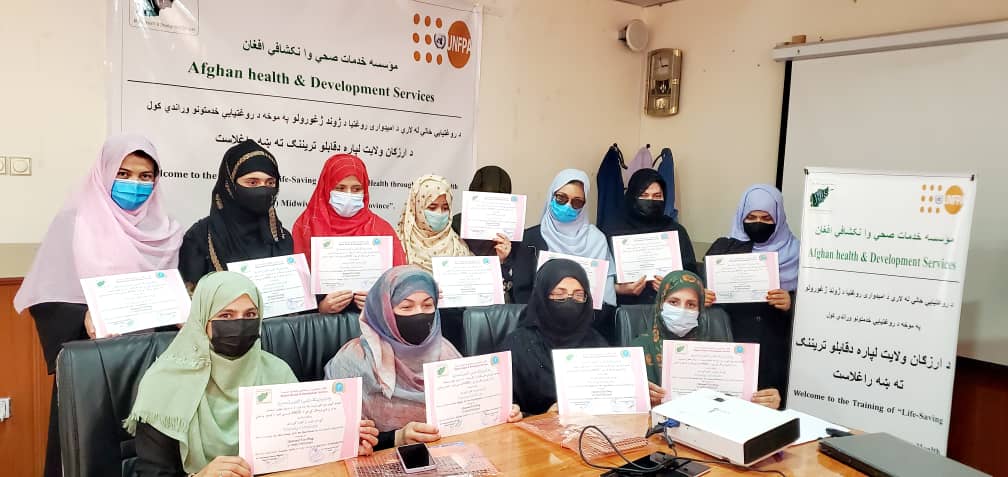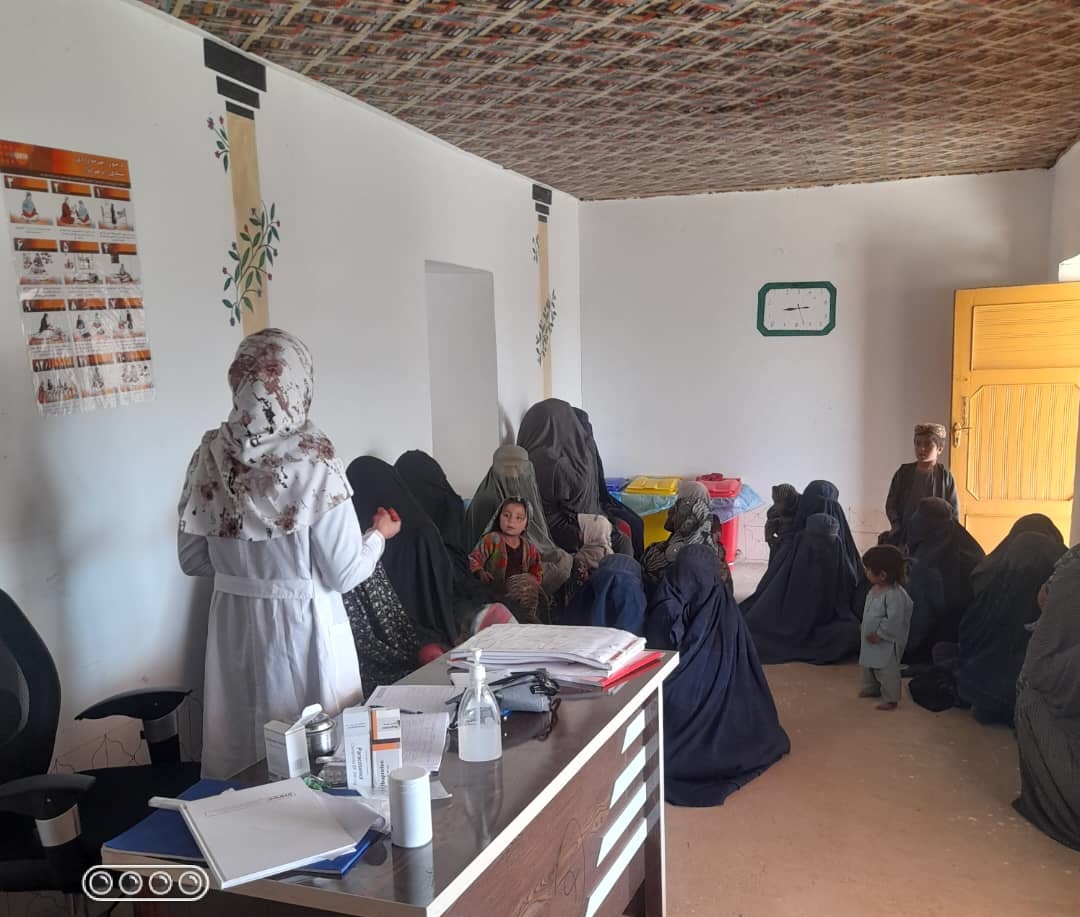Life-saving Reproductive Healthcare
The overall objective is to provide life-saving reproductive health services. The purpose is increased access to basic reproductive maternal, newborn, child and adolescent health (RMNCAH) services through family health houses (FHH) in 95 prioritized white areas of the Helmand, Kandahar, Nimroz, & Uruzgan provinces.
A family health house (FHH) is run by a community midwife, located near the midwife’s home for easy, round-the-clock emergency care. Each FHH will be located at least 10 kilometers or three-hours walk from the nearest health facility and serves a population of 1,500 – 3,000 people. All services are free-of-charge, reducing families’ out-of-pocket expenditures for health care and transportation-related costs. FHHs are desperately needed solution that can be scaled to reduce maternal, infant, and childhood morbidity and mortality while increasing access to family planning information and services.

The FHH model involves four components: the FHH itself, a health post (one male and one female CHW), two family health action groups (FHAG) and a community health committee (Shura).
FHH model delivers life-saving reproductive, maternal, newborn, and child health care to some of the most underserved areas. FHHs offer round-the-clock services before, during, and after pregnancy, including provision of basic yet essential care for children under 5-years-old, and family planning information and tools. Very importantly, community midwives screen for complications during pregnancy and proactively refer high-risk cases to better equipped public health facilities, C-EmONC facilities, and pediatrics wards; this referral system is the backbone of the program model.

Family Health Acton Groups (FHAG) are made up of 10-15 reproductive-age women who promote health messages and behaviors within their communities on a voluntary basis, primarily related to reproductive, maternal, newborn, child, and adolescent health. The volunteers also encourage service utilization of FHH. FHAG partake in basic orientation and regular information sessions from the health posts’ female community health workers.

Most of the FHHs have integrated expanded program of immunization (EPI) and minimal nutrition services as well. The intention is expand them to all FHHs gradually.
